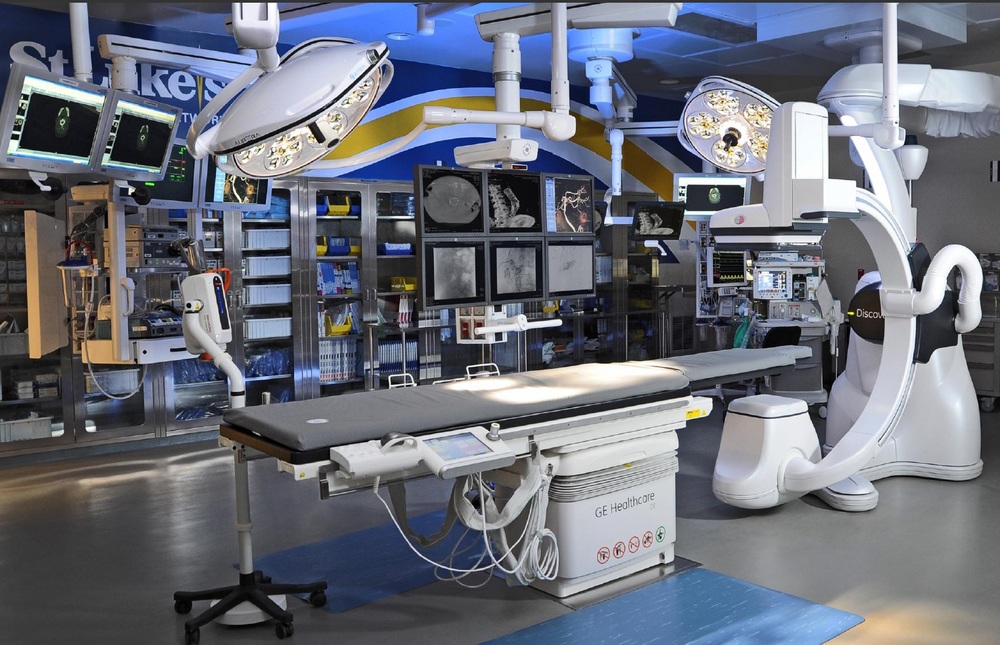TOP 10: Most Efficient Pieces of Hospital Technology

Which technologies are keeping hospitals as competitive as possible?
10. Patient-Friendly Technologies
Health IT, surgical technology and the like help to shape reputation, but how a hospital accommodates its patients directly with technology is just as critical. There are eight technologies in particular that make a positive difference in a hospital's reputation. They are central scheduling, speech-assisted automated attendant systems, master patient index, self-register kiosks, wireless connectivity, bedside computer terminals, bedside medication verification, and online bill pay.

9. Social Media
If hospitals want to communicate and reach the broadest patient population possible, they should instill a social media plan. The basics of any social media plan include assessing the hospital's readiness, experimenting with the different types of social media technologies and services, establishing a direction, creating dialogue and monitoring analytics to see how a hospital's presence is being received.

8. Staffing Management Technology
Staffing and labor costs can consume more than 50 percent of expenses at most hospitals, according to Becker’s Hospital Review. In order to keep those costs in check, hospitals can implement staffing management technology to keep scheduling at an optimal state without sacrificing patient care.
7. Infection-Detecting Technologies
An example of an infection detection technology is the procalcitonin, or PCT, test for a hospital’s sepsis program. The test is a tool that detects sepsis earlier, therefore avoiding the overutilization of antibiotics. It is cost-effective over the long term because it will allow hospitals to diagnose and manage infections more successfully and reduce the hospital’s need to pay for costly antibiotics.

6. Hybrid Operating Rooms
Greg McIff, global director of strategic cardiovascular marketing for GE Healthcare, says hybrid operating rooms today allow for the best utilization of space and time for hospitals and their surgeons. "The hybrid OR is an environment that enables a surgeon or an interventional specialist to perform catheter-based minimally invasive interventions as well as open surgery."
5. Smartphones & Tablets
Over the past several years, the omnipresence of smartphones, tablets and their applications has been one of the biggest cultural shifts in the hospital setting, as well as society at large. They provide a wealth of information for physicians and other clinicians — and all within a fingertip's reach. While some hospitals may not directly provide smartphones and tablets to their physicians and clinical staff, hospitals still have to be aware of them.

4. Telehealth Tools
Bi-directional video feed, cameras, TVs and wireless infrastructure are some of the elements hospitals are adopting to remain competitive in the telehealth realm. The biggest advantage hospitals will gain from telehealth technologies are the ability to help patients immediately while trimming down the costs of an acute-care admission.
3. Ultrasound Imaging Devices
Physicians, especially those within the emergency department, have become more adept at using ultrasound imaging devices over the past 10 years. Bob Hitchcock, MD, an emergency department physician at Manatee Memorial Hospital and Lakewood Ranch Medical Center in Bradenton, Fla. says hospitals are concerned with what equipment they're using in the emergency department, like the ultrasound. “When I was going through training, we were using what radiology was throwing away. Now, hospitals are realizing they can attract and retain the latest and greatest, and that's important from a physician satisfaction perspective.”
2. Surgical Equipment
Surgery has allowed for the mass-scale shift to minimally invasive procedures and the technological “poster-child” of surgery equipment has been the robotic surgical system, such as the da Vinci Surgical System.
“Certainly, having the tools to provide top-level care to their patients is what attracts physicians to a given hospital," says Linda Efferen, MD, chief medical officer at South Nassau Communities Hospital in Oceanside, N.Y. "The da Vinci Surgical System is one example. I think it has gained a place where it's essential for hospitals to have. As new graduates come out, they're being trained on it. If that level of sophistication in technology isn't there, they're not in the right positions to provide that standard of care.”
The intraoperative MRI is also unique because it is used during surgery to remove brain tumors.

1. Electronic Health Records
Electronic health records, otherwise known as EHRs, have increasingly become more and more prominent in the healthcare industry during recent years, especially as the industry places a bigger emphasis on preventative care and population health.
According to Dr. Efferen, “[EHRs are] a platform for communication. As a patient moves from one location in the healthcare continuum to another, we have another way to track patient information across the continuum of care.”
Bob Hitchcock, MD, an emergency department physician at Manatee Memorial Hospital and Lakewood Ranch Medical Center in Bradenton, Fla., recently told Becker’s Hospital Review that hospitals with certified and efficient EHRs are also doing themselves a favor in the recruitment of physicians. From his experience as an ED physician, hospitals that have simple, easy-to-use EHR systems are much more successful in their physician recruitment efforts.
Follow us on Twitter (@HealthcareGlbl) and like us on Facebook!
